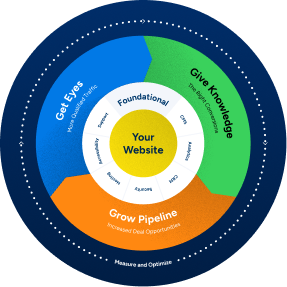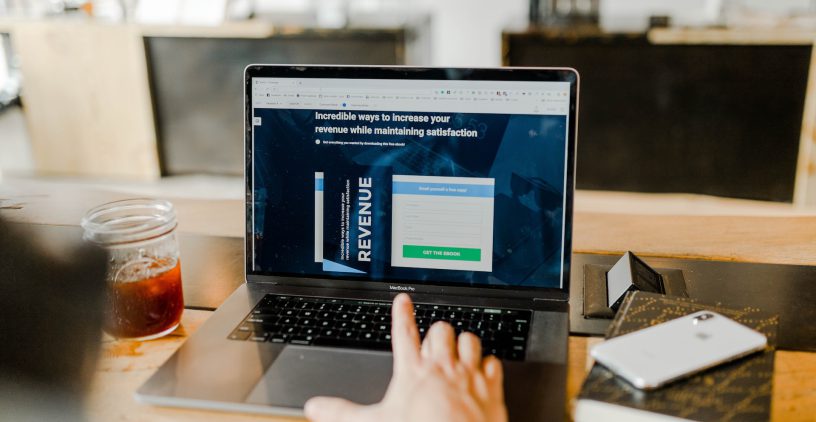B2B SEO and B2B PPC are terms that marketers are very familiar with, and for good reason. Most B2B businesses have a website, and driving traffic to this website is crucial for them to grow and make a profit.
However, driving the right kind of traffic is essential, and that’s where B2B SEO and B2B PPC campaigns come in. There is a difference between how B2C and B2B companies run marketing campaigns, and as such, there is a difference in how they approach SEO and PPC.
The question is, can a B2B company run SEO and PPC marketing campaigns together, or should they be separate from each other?
This article aims to answer that question and provide a good understanding of what these two terms mean for a B2B company.
What is SEO?
B2B SEO (Search Engine Optimization) is designed to organically enhance search engine rankings and drive traffic. When a B2B company has a successful strategy, its website will reach its audience and attract a lot more traffic than it ever could without SEO.
Although B2B businesses require a different approach, the SEO basics are still the same as with any other marketing effort. You must keep content, off-page SEO, on-page SEO, and technical SEO in mind when building your strategies.
The primary difference between B2C SEO and B2B SEO lies in the target audience. As a result, a B2B company’s sales funnel will be different, the keywords won’t be the same, and marketing efforts will have a different approach.
What is PPC?
B2B PPC (Pay-Per-Click) can play a significant role in a B2B company’s advertising efforts, meaning you pay for every click to drive traffic to your company website. PPC advertising lets you create an advertisement with a specific destination—one of the pages on your website.
Typically, B2B PPC is aimed at getting people who are at the bottom of the sales funnel and are ready to make a purchase. You create highly targeted ads to reach consumers who are ready to make a purchase. To be successful, your ads must be solution-focused and take consumers to landing pages optimized to encourage visitors to buy.
Can PPC Boost Your SEO?
Although PPC does drive traffic to your website, it doesn’t directly impact your SEO because it’s not an organic method. You can supplement your B2B SEO strategy with PPC, however, and reap impressive rewards.
At their core, though, PPC and SEO are two different elements of marketing, and they have different purposes.
SEO’s purpose is to satisfy the searcher’s intent, whereas PPC is aimed more at offering an immediate solution.
SEO vs. PPC: Which is Better?
Comparing B2B SEO and B2B PPC is almost like comparing apples and oranges. They serve different purposes, so deciding which one is better is nearly impossible. It all comes down to your marketing goals and what you hope to achieve.
SEO is excellent for long-term marketing, and PPC can fill the gap while you wait for your SEO efforts to pay off. SEO works well for local searches and for improving your online presence without spending a lot of money.
PPC costs money, and your aim is to get your content in front of a specific audience searching for a specific solution to their pain points. PPC offers quicker results than SEO, but SEO’s results are longer lasting.
If you don’t have a big budget and want to focus more on long-term ROI (Return On Investment), you’re better off with SEO. If you want to direct people to a sales or landing page or want fast results, PPC is the way to go.
The Balance Between SEO and PPC
To maximize the benefits of PPC and SEO, it is essential to strike a balance between the two strategies. Finding balance will help to reduce your cost-per-lead in the long run, which is especially beneficial since PPC can become costly.
To achieve a good balance, you can start by getting your PPC campaigns up and running before you kick off your SEO strategies. Your PPC campaigns should run in the background while you plan your SEO.
Combining Your B2B PPC and B2B SEO Strategy
Taking PPC and SEO strategies and combining them can be easier said than done, but when you get it right, you have a fantastic marketing opportunity.
You can start by running your intent-based PPC campaign with most of your budget invested there. Focus on high-intent keywords because ranking for them organically can be very tough since they’re so competitive.
Run an SEO campaign simultaneously, aiming to rank organically by utilizing the most relevant keywords. Use the data from your PPC campaigns to determine the best keywords, descriptions, and headlines. If you have success with your PPC campaign, your SEO can benefit from the exact words.
Continuously test different headlines, landing page variations, product messaging, title tags, topics, keywords, and description copy.
Next, you need to optimize your landing pages so they can help you benefit from both PPC and SEO. Have a conversion-focused landing page for your PPC advertising where you aim to get conversions through live chat inquiries, demo requests, and form completions.
Then, create an SEO landing page with different variants of your landing page. Do split tests to determine their performance. This landing page is more educational and focused on the topic for which you want to drive organic visibility.
Learn from your campaigns and build new ones based on the data. It is no longer a question of whether PPC or SEO is better. You can achieve marketing magic if you combine the two strategies.
PPC data can be compelling. When you use the data you gain to complement your SEO, you can achieve search marketing glory.
Talk to Goingclear About Your B2B SEO and PPC Marketing
B2B SEO and B2B PPC have always been seen as mutually exclusive marketing strategies. However, if you combine them, you can build a campaign that can be incredibly powerful and successful.
Getting started can be a bit challenging, though, so you may need some guidance. The experienced team of digital marketers and strategic thinkers at GoingClear is here to assist you. Connect with us to learn more about how we can help with your B2B SEO needs.
The Ultimate Guide to B2B SEO
Check out the Ultimate Guide to B2B SEO and download our checklist!

